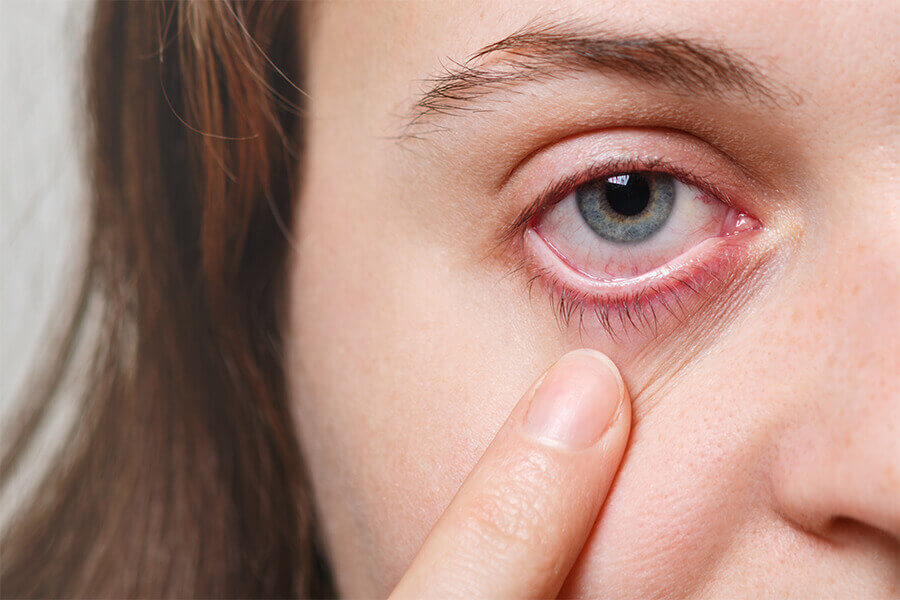
16 Feb HOW DO ALLERGIES AFFECT YOUR EYES?
If you are feeling itching, burning sensation, and watery eyes that are probably because of allergens attacking your eyes. The sight of your eyes with a bright red hue is probably common when having an allergy. Any foreign substance which aggravates an immune response of the body is called an “allergen”. These allergic particles attach to the antibodies present in the eye and release chemicals called “histamines”. These are inflammatory chemicals responsible for eye puffiness, tears, and redness. People tend to be more prone to eye allergies when the eye gets exposed to the external environment. Wearing eyeglasses with good-quality optical lenses assures protection from such allergens.
TRIGGERS OF EYE ALLERGIES:
- Pollens from grass trees and weeds
- Dust mites and molds
- Pet dandruff
- Cigarette smoke and diesel smoke
- Irritants of perfumes and other sprays
EFFECTS OF ALLERGIES ON EYES:
The effects of allergies can range from mild to severe depending on the exposure to environmental factors and the patient’s compliance with treatment options. The individual could be affected by various allergens around the year. Some of the most common types are mentioned here:
- Seasonal allergies are caused during summers, springs, autumns, and winters based on the pollen spread in the atmosphere then. This causes conjunctivitis that turns the eyes puffy and itchy. It is mostly accompanied by sneezing and nasal congestion.
- Perennial allergic conjunctivitis can occur anytime around the year. This is mainly caused by indoor/ household allergens like molds, dust mites, pet fur, etc. This causes symptoms very much like seasonal allergies.
- Vernal keratoconjunctivitis is the most serious allergic reaction to the eyes. Its symptoms aggravate at a particular time of the year. The patient experiences severe itching accompanied by foreign body sensations and mucous secretion. Its distinguishing feature is that it is usually presented with sensitivity to light (Photophobia).
- Atopic keratoconjunctivitis is caused secondary to allergic dermatitis. This means if the person is prone to skin allergies this can be its predisposing factor.
- Contact allergic conjunctivitis is a reaction caused mainly by contact lens users. The proteins present on the lenses cause such reactions. It is presented with mucous secretion and lens discomfort.
- Giant Papillary conjunctivitis is a severe contact lens allergy. As the name says the allergens form enlarged fluid sacs /papules inside the upper eyelid causing severe discomfort and intolerance to lens wear.
Allergies can be managed and treated at home. The best strategy to control any allergy is to reduce exposure to such allergens. If a person is mostly working outside, he must use eyewear with properly fitted Optical lenses that could shield him from harmful exposures. On The other hand, using OTC anti-allergic drops also helps a lot.

No Comments